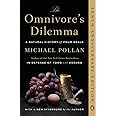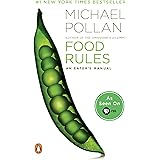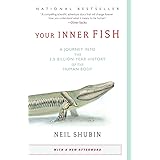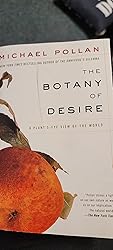
Enjoy fast, free delivery, exclusive deals, and award-winning movies & TV shows with Prime
Try Prime
and start saving today with fast, free delivery
Amazon Prime includes:
Fast, FREE Delivery is available to Prime members. To join, select "Try Amazon Prime and start saving today with Fast, FREE Delivery" below the Add to Cart button.
Amazon Prime members enjoy:- Cardmembers earn 5% Back at Amazon.com with a Prime Credit Card.
- Unlimited Free Two-Day Delivery
- Streaming of thousands of movies and TV shows with limited ads on Prime Video.
- A Kindle book to borrow for free each month - with no due dates
- Listen to over 2 million songs and hundreds of playlists
- Unlimited photo storage with anywhere access
Important: Your credit card will NOT be charged when you start your free trial or if you cancel during the trial period. If you're happy with Amazon Prime, do nothing. At the end of the free trial, your membership will automatically upgrade to a monthly membership.
Buy new:
-17% $15.02$15.02
Ships from: Amazon.com Sold by: Amazon.com
Save with Used - Good
$7.86$7.86
Ships from: Amazon Sold by: Martistore

Download the free Kindle app and start reading Kindle books instantly on your smartphone, tablet, or computer - no Kindle device required.
Read instantly on your browser with Kindle for Web.
Using your mobile phone camera - scan the code below and download the Kindle app.

OK
 Audible sample Sample
Audible sample Sample 


The Botany of Desire: A Plant's-Eye View of the World Paperback – May 28, 2002
Purchase options and add-ons
“A wry, informed pastoral.” —The New Yorker
The book that helped make Michael Pollan, the New York Times bestselling author of How to Change Your Mind, Cooked and The Omnivore’s Dilemma, one of the most trusted food experts in America
Every schoolchild learns about the mutually beneficial dance of honeybees and flowers: The bee collects nectar and pollen to make honey and, in the process, spreads the flowers’ genes far and wide. InThe Botany of Desire, Michael Pollan ingeniously demonstrates how people and domesticated plants have formed a similarly reciprocal relationship. He masterfully links four fundamental human desires—sweetness, beauty, intoxication, and control—with the plants that satisfy them: the apple, the tulip, marijuana, and the potato. In telling the stories of four familiar species, Pollan illustrates how the plants have evolved to satisfy humankind’s most basic yearnings. And just as we’ve benefited from these plants, we have also done well by them. So who is really domesticating whom?
- Print length271 pages
- LanguageEnglish
- PublisherRandom House Trade Paperbacks
- Publication dateMay 28, 2002
- Dimensions5.2 x 0.65 x 7.96 inches
- ISBN-100375760393
- ISBN-13978-0375760396
- Lexile measure1350L
The Amazon Book Review
Book recommendations, author interviews, editors' picks, and more. Read it now.
Frequently bought together

More items to explore
 Design in nature is but a concatenation of accidents, culled by natural selection until the result is so beautiful or effective as to seem a miracle of purpose.Highlighted by 1,095 Kindle readers
Design in nature is but a concatenation of accidents, culled by natural selection until the result is so beautiful or effective as to seem a miracle of purpose.Highlighted by 1,095 Kindle readers Psychiatrists regard a patient’s indifference to flowers as a symptom of clinical depression.Highlighted by 665 Kindle readers
Psychiatrists regard a patient’s indifference to flowers as a symptom of clinical depression.Highlighted by 665 Kindle readers Sometimes the cause of civilization is best served by a hard stare into the soul of its opposite.Highlighted by 480 Kindle readers
Sometimes the cause of civilization is best served by a hard stare into the soul of its opposite.Highlighted by 480 Kindle readers
Editorial Reviews
From The New Yorker
Copyright © 2005 The New Yorker
Review
“[Pollan] has a wide-ranging intellect, an eager grasp of evolutionary biology and a subversive streak that helps him to root out some wonderfully counterintuitive points. His prose both shimmers and snaps, and he has a knack for finding perfect quotes in the oddest places. . . . Best of all, Pollan really loves plants.” —The New York Times Book Review
“A wry, informed pastoral.” —The New Yorker
“We can give no higher praise to the work of this superb science writer/ reporter than to say that his new book is as exciting as any you’ll read.” —Entertainment Weekly
“A whimsical, literary romp through man’s perpetually frustrating and always unpredictable relationship with nature.” —Los Angeles Times
From the Back Cover
About the Author
Excerpt. © Reprinted by permission. All rights reserved.
Desire: Sweetness
Plant: The Apple
(Malus domestica)
If you happened to find yourself on the banks of the Ohio River on a particular afternoon in the spring of 1806—somewhere just to the north of Wheeling, West Virginia, say—you would probably have noticed a strange makeshift craft drifting lazily down the river. At the time, this particular stretch of the Ohio, wide and brown and bounded on both sides by steep shoulders of land thick with oaks and hickories, fairly boiled with river traffic, as a ramshackle armada of keelboats and barges ferried settlers from the comparative civilization of Pennsylvania to the wilderness of the Northwest Territory.
The peculiar craft you’d have caught sight of that afternoon consisted of a pair of hollowed-out logs that had been lashed together to form a rough catamaran, a sort of canoe plus sidecar. In one of the dugouts lounged the figure of a skinny man of about thirty, who may or may not have been wearing a burlap coffee sack for a shirt and a tin pot for a hat. According to the man in Jefferson County who deemed the scene worth recording, the fellow in the canoe appeared to be snoozing without a care in the world, evidently trusting in the river to take him wherever it was he wanted to go. The other hull, his sidecar, was riding low in the water under the weight of a small mountain of seeds that had been carefully blanketed with moss and mud to keep them from drying out in the sun.
The fellow snoozing in the canoe was John Chapman, already well known to people in Ohio by his nickname: Johnny Appleseed. He was on his way to Marietta, where the Muskingum River pokes a big hole into the Ohio’s northern bank, pointing straight into the heart of the Northwest Territory. Chapman’s plan was to plant a tree nursery along one of that river’s as-yet-unsettled tributaries, which drain the fertile, thickly forested hills of central Ohio as far north as Mansfield. In all likelihood, Chapman was coming from Allegheny County in western Pennsylvania, to which he returned each year to collect apple seeds, separating them out from the fragrant mounds of pomace that rose by the back door of every cider mill. A single bushel of apple seeds would have been enough to plant more than three hundred thousand trees; there’s no way of telling how many bushels of seed Chapman had in tow that day, but it’s safe to say his catamaran was bearing several whole orchards into the wilderness.
The image of John Chapman and his heap of apple seeds riding together down the Ohio has stayed with me since I first came across it a few years ago in an out-of-print biography. The scene, for me, has the resonance of myth—a myth about how plants and people learned to use each other, each doing for the other things they could not do for themselves, in the bargain changing each other and improving their common lot.
Henry David Thoreau once wrote that “it is remarkable how closely the history of the apple tree is connected with that of man,” and much of the American chapter of that story can be teased out of Chapman’s story. It’s the story of how pioneers like him helped domesticate the frontier by seeding it with Old World plants. “Exotics,” we’re apt to call these species today in disparagement, yet without them the American wilderness might never have become a home. What did the apple get in return? A golden age: untold new varieties and half a world of new habitat.
As an emblem of the marriage between people and plants, the design of Chapman’s peculiar craft strikes me as just right, implying as it does a relation of parity and reciprocal exchange between its two passengers. More than most of us do, Chapman seems to have had a knack for looking at the world from the plants’ point of view—“pomocentrically,” you might say. He understood he was working for the apples as much as they were working for him. Perhaps that’s why he sometimes likened himself to a bumblebee, and why he would rig up his boat the way he did. Instead of towing his shipment of seeds behind him, Chapman lashed the two hulls together so they would travel down the river side by side.
We give ourselves altogether too much credit in our dealings with other species. Even the power over nature that domestication supposedly represents is overstated. It takes two to perform that particular dance, after all, and plenty of plants and animals have elected to sit it out. Try as they might, people have never been able to domesticate the oak tree, whose highly nutritious acorns remain far too bitter for humans to eat. Evidently the oak has such a satisfactory arrangement with the squirrel—which obligingly forgets where it has buried every fourth acorn or so (admittedly, the estimate is Beatrix Potter’s)—that the tree has never needed to enter into any kind of formal arrangement with us.
The apple has been far more eager to do business with humans, and perhaps nowhere more so than in America. Like generations of other immigrants before and after, the apple has made itself at home here. In fact, the apple did such a convincing job of this that most of us wrongly assume the plant is a native. (Even Ralph Waldo Emerson, who knew a thing or two about natural history, called it “the American fruit.”) Yet there is a sense—a biological, not just metaphorical sense—in which this is, or has become, true, for the apple transformed itself when it came to America. Bringing boatloads of seed onto the frontier, Johnny Appleseed had a lot to do with that process, but so did the apple itself. No mere passenger or dependent, the apple is the hero of its own story.
Product details
- Publisher : Random House Trade Paperbacks (May 28, 2002)
- Language : English
- Paperback : 271 pages
- ISBN-10 : 0375760393
- ISBN-13 : 978-0375760396
- Lexile measure : 1350L
- Item Weight : 2.31 pounds
- Dimensions : 5.2 x 0.65 x 7.96 inches
- Best Sellers Rank: #27,454 in Books (See Top 100 in Books)
- #2 in Horticulture (Books)
- #33 in Botany (Books)
- #36 in Ecology (Books)
- Customer Reviews:
About the author

Michael Pollan is the author of seven previous books, including Cooked, Food Rules, In Defense of Food, The Omnivore's Dilemma and The Botany of Desire, all of which were New York Times bestsellers. A longtime contributor to the New York Times Magazine, he also teaches writing at Harvard and the University of California, Berkeley. In 2010, TIME magazine named him one of the one hundred most influential people in the world.
Customer reviews
Customer Reviews, including Product Star Ratings help customers to learn more about the product and decide whether it is the right product for them.
To calculate the overall star rating and percentage breakdown by star, we don’t use a simple average. Instead, our system considers things like how recent a review is and if the reviewer bought the item on Amazon. It also analyzed reviews to verify trustworthiness.
Learn more how customers reviews work on AmazonReviews with images
-
Top reviews
Top reviews from the United States
There was a problem filtering reviews right now. Please try again later.
“The Omnivore’s Dilemma,” published in 2007, is subtitled: “A Natural History of Four Meals.” The number “four” is also operative in “The Botany of Desire,” which was published in 2002. It is the story of four plants: apples, tulips, cannabis and potatoes. Reflecting the theme of the title, there are four human desires that are associated with these plants: sweetness, beauty, intoxication and control, respectively.
Early in the book Pollan teasingly throws out the idea that perhaps the classic view: “People cultivate plants” should be inverted. For sure, Pollan does not fall off some “New Age talk-to-the-plants” cliff (and they will talk back) but posits a sound argument that without a conscious effort, plants evolve to utilize humans and animals to make up for their lack of mobility. His introduction is entitled: “The Human Bumblebee.”
Alma-Ata (Kazakhstan) means “father of the apple.” From the surrounding area the apple spread throughout the world, in part, aided by John Chapman, an American folklore hero more famously called: “Johnny Appleseed.” Pollan traveled to eastern Ohio, which, in 1806, was once the American frontier, and attempted to sort out the man from the myth, providing many an illuminating insight. Among those insights: apples were planted not for eating, but for drinking… in fermented form, and it was Prohibition that forced the apple growers to concoct the marketing slogan: “An apple a day keeps the doctor away.”
Tulips originated in Turkey. An Austrian Ambassador to the Court of Suleyman the Magnificent in Constantinople served as the “bumblebee” in this case, bringing tulip bulbs back to Europe, where they spread to Holland and fueled one of the more famous financial “bubbles,” ironically among normally staid Calvinists, in the 17th Century. A “holy grail” among tulip cultivators is a black tulip since black occurs so infrequently in the living plant world. The grail is still elusive but Pollan is proud of his dark maroon one.
Cannabis is associated with the desire for intoxication. Hidden in plain sight, as Pollan says, is the chronic problem with mind-altering substances that are abused: “toxic.” Pollan provides a brilliant exposition on this perennial flashpoint of America’s cultural wars. Anslinger, and “Reefer Madness” make the obligatory cameo appearance. Much more instructive was the update from the ‘60’s, in terms of how marijuana is raised and cultivated in the United States, and the pendulum swinging back and forth towards legalization (written in 2002, he does not anticipate its legalization in neighboring Colorado, or a handful of other states). He has justified concerns about the two “errant” plants in his backyard, noting under federal asset forfeiture laws that if a case was brought: “The People of Connecticut v. Michael Pollan’s Garden”, his land could become the property of the New Milford Police Department. Pollan introduced me to Raphael Mechoulam, an Israeli scientist who isolated the chemically active component: THC. The author provides a BRILLIANT description of “plain-ol’” vanilla ice cream as experienced in an altered state of consciousness, and questions whether, chemically there is a difference between the chemically-aided version and that induced by meditation, fasting, and other methods. Indeed, there is a “sense of wonder,” as Pollan says, about seeing things fresh and anew, as a child might, that can make a trip worthwhile, so all the news does not repeat itself.
Potatoes are the subject of the last chapter, starting their journey from their historic epicenter high in the Andes and brought back to Europe by the conquering Spaniards. They may have been introduced into Ireland by a shipwreck from the Spanish armada in 1588, providing a godsend to a starving people where other crops would not readily grow. A “godsend” until the famine of the 1840’s caused a reduction by half of Ireland’s population (through starvation and emigration). The dangers of an agricultural “monoculture.” Pollan visits the headquarters of Monsanto in St. Louis, which is doing so much to introduce the entire world to the “intellectual property” of patented genes and seeds and goes off to Idaho to describe its implementation.
Indicative of Pollan’s outlook and writing style is the following quote concerning his visit to the St. Louis Monsanto headquarters, and his meeting with Dave Hjelle, the company’s director of regulatory affairs: “Dave Hjelle is a disarmingly candid man, and before we finished our lunch he uttered two words that I never thought I’d hear for the lips of a corporate executive, except perhaps in a bad movie. I’d assumed these two words had been scrupulously expunged from the corporate vocabulary many years ago, during a previous paradigm long since discredited, but Dave Hjelle proved me wrong: ‘TRUST US’.”
To see anew, and act anew, and the catalyst can come from a book: 6-stars for Pollan’s many, many fine insights.
I have only two problems with this book. First, the section on marijuana is a little scattered as Pollan begins to describe what the plant does to our mind, then descends into a rambling discussion on the importance of forgetting and the meaning of wonder. Not necessarily bad writing, but not really focused on plants, either.
My second problem is that while the first three sections do for the most part focus on the plants, the potato section is mostly an indictment of Monsanto, the seed company. While this is a company with plenty of demons to expose, the section could have been very interesting if it focused on the potato's evolution and transformations from noxious root to staple food. You get the feeling Pollan was just waiting to tee off on Monsanto and went off on a tangent.
All that being said, it is a very good book about a most interesting and unique topic. I have never thought about the "plant's-eye view," as Pollan says. He is a gifted writer who can make the strangest and most obscure topics exciting and interesting. Throughout his books you just stop after reading something and wonder at it. He tells of a plant that has evolved spots that appear to be a female bee's backside so that male bees plow into it, getting coated with pollen. Becoming frustrated, they do this multiple times to many different flowers and spread the pollen around. How amazing is that? A plant figuring out what the backside of an insect looks like. A year ago, I cared not one whit about plants, but now Pollan is one of my favorite writers.
















